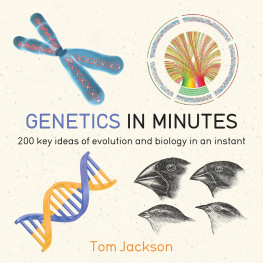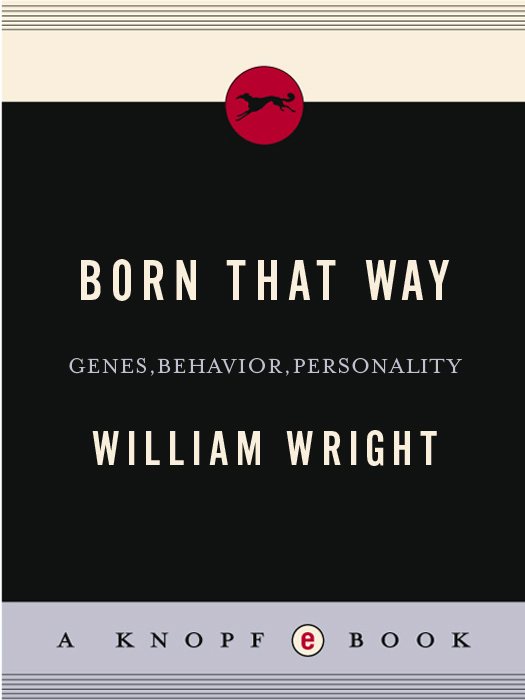ALSO BY WILLIAM WRIGHT
PAVAROTTI: MY WORLD (coauthor)
SINS OF THE FATHER
THE VON BLOW AFFAIR
ALL THE PAIN THAT MONEY CAN BUY
LILLIAN HELLMAN: THE IMAGE, THE WOMAN
PAVAROTTI: MY OWN STORY (coauthor)
THE WASHINGTON GAME
THIS IS A BORZOI BOOK
PUBLISHED BY ALFRED A. KNOPF, INC.
Copyright 1998 by William Wright
All rights reserved under International and Pan-American Copyright Conventions.
Published in the United States by Alfred A. Knopf, Inc., New York,
and simultaneously in Canada by Random House of Canada Limited, Toronto.
Distributed by Random House, Inc., New York.
www.randomhouse.com
Grateful acknowledgment is made to Simon & Schuster and Marianne Craig Moore for permission to reprint an excerpt from In Distrust of Merits from The Collected Poems of Marianne Moore, copyright 1944, copyright renewed 1972 by Marianne Moore.
Reprinted by permission of Simon & Schuster and Marianne Craig Moore,
Literary Executor for the Estate of Marianne Moore. All rights reserved.
Library of Congress Cataloging-in-Publication Data
Wright, William, [date]
Born that way : genes, behavior, personality / by William Wright.
p. cm.
Includes bibliographical references.
eISBN: 978-0-307-81938-3
1. Human genetics. 2. Nature and nuture. I. Title.
QH 431. W 785 1998
304.5dc21 98641
v3.1
Contents
Preface
M Y FOUR-DECADE JOURNEY to this book began when I was an undergraduate at Yale in the 1950s. Psychology was the days hot subject. Actually, Freudian analysis was the center of heat and light, but the closest a Yale freshman could come to that glamorous, high-fashion truth about human functioning was Yales psychology department. Undergraduate aficionados of psychoanalysis had to content themselves with snap-remedy films like Spellbound; Now, Voyager; and The Snake Pit.
Undaunted, I went to New Haven with the intention of majoring in psychology. If inspired as hoped, I would proceed to medical school and on into psychiatry. I had just read The Brothers Karamazov and was enthralled by the saintly brother, Alyosha, who couldnt do enough for everybody. With hopes of emulating his compassion, I envisioned myself an analyst ministering to the broken and tormented. In the process, I might gain insight into my own psychewhich at the time seemed to be careening in directions I didnt like.
Rather than inspired, however, I was depressed by Yales entry-level psychology. The courses were arid, dull, and obsessed with rats. It was as though Yale hoped, by boring neophytes silly, to weed out students keen on kinks and aberrations, or even worse, students keen on self-contemplation. I, of course, was keen on kinks and aberrations, my own and those of others, and began to rethink my academic future.
My disillusion had a more substantial component. I did not have to delve very deeply into the psychological literature to learn the degree to which the field was dominated by behaviorism, the theory that humans are born free of any significant innate programming and can be molded as society desires by systems of rewards and punishments. It was made clear to undergraduates that whatever back-porch wisdom we may have brought to New Haven about inherited traits was the kind of bunk we were paying Yale to purge. Behaviorism was where it was at. Theory is too weak a word for behaviorisms hold on psychology in the fifties; it was the days indisputable truth and was embraced by virtually every university in the U.S. and Europe.
The vision of the tabula rasa human did not stop with the psychology departments. All the countrys social scientists were in the thrall of Ruth Benedict, Margaret Mead, and other anthropologists who promoted the same vision of unprogrammed humans. For decades their disciples saw toddlers as just so much random-access memory onto which any number of operating systems could be downloaded by culture. Generations of anthropologists were happily certain that humans per se were fine; culture and society had turned us into the messes we were. It followed that different cultures and societies (and political systems) could refashion the human into something quite adorable. As with the behaviorists, the views of these cultural determinists prevailed.
I felt that the model of the human as a blank slate on which anything could be written was too simple, too tidy, too optimistic. I was, after all, at the institution that had turned Cole Porter into a bulldog and crafted the unpromising raw material of Dink Stover into a Yale man! Yes, in their eyes the environment could do anything. (While reading this book, you must forget about the environment as clean air and toxic rivers; psychologists had the word first and use it to mean all the external influences at work on an organism, from womb conditions to nursing home.)
None of this born-free dogma, sometimes called environmental determinism, jibed with what I had experienced in eighteen years of sly observation of my fellow humans. I had known brothers raised in the same family who were entirely different in personality and temperament. My sister and I, growing up in one household with the same parents, the same diet, the same rewards and punishments, were highly dissimilar people. I had read enough about other cultures to know that, Meads Samoan utopia notwithstanding, certain nasty human characteristics seemed to turn up in culture after culture with disheartening regularity. The social sciences in the 1950s were addressing a human quite different from the one I knew.
My presumption, however, ended with my skepticism. I decided it would be daft to enter a field the fundamental tenets of which I rejected. I wished the psychologists well with their rat mazes and their behaviorist certainties, and headed into the less insistent world of art and literature. (I should not make light of the rat-runners, although, to my shame, or perhaps to Yales, I considered this important and fascinating research ridiculous at the time.)
In the 1960s, a decade after I finished college, books appeared and caused a stir that pointed to a very different view of human nature from the one that had driven me from psychology. Robert Ardreys African Genesis and Konrad Lorenzs On Aggression took the strongly Darwinian view that humans, like all animals, were products of evolution and, like all animals, were born with an elaborate structure of behavioral dispositions transmitted through the generations by genes.
Simple and logical, even obvious, as this view might now appear, it was considered blasphemy in some quartersand still is to an immovable few. Large numbers of thoughtful people, however, saw it as important news; a handful even recognized the ideas epoch-shifting potential. The behaviorist Bastille had, if not fallen, suffered a telling blow. This alternative view excited me mightily, not because I relished Ardreys notion that we humans were domesticated killer apes, but because the basic assumption of inherited characteristics rang true, the entrenched orthodoxy about man-made human nature rang false.
I began reading other books by these authors and the works of scientists with similar ideasNiko Tinbergen, Edward O. Wilson, Lionel Tiger, Robin Fox, Jane Goodalland was delighted to discover so many with this Darwinist perspective on our species. My enthusiasm for the changing view of the human was apparently shared by many other nonscientists who may have shared as well my dissatisfaction with the view we all had been fed at college. Whatever needs the books met, they found a wide audience among general readers and attracted broad media attention.












